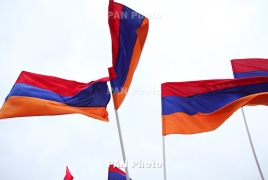
Armenia has emerged as the regional leader in press freedom, according to the 2025 World Press Freedom Index published by Reporters Without Borders (RSF). The country advanced nine positions from the previous year, securing the 34th spot among 180 nations.
In 2024, Armenia was ranked 43rd with a score of 71.6, and in 2023, it held the 49th position with 70.61 points.
In contrast, neighboring countries experienced declines. Georgia fell 11 places to 114th, Azerbaijan dropped three spots to 167th, Turkey slipped one position to 159th, Iran remained at 176th, and Russia descended nine places to 171st.
The RSF report highlights that while physical attacks on journalists remain a prominent threat to press freedom, economic pressures have become a significant, albeit less visible, concern. The economic indicator in the 2025 index reached its lowest point in history, with the global situation now considered “difficult” .
Worldwide, the state of press freedom has deteriorated, with the economic fragility of media outlets posing a severe threat. Factors such as concentrated media ownership, advertiser pressure, and opaque or absent public aid contribute to this decline.
Even countries with relatively high rankings, like South Africa (27th) and New Zealand (16th), have been affected by economic instability in the media sector.
The United States, ranked 57th, faces a significant economic crisis in journalism, with over 60% of journalists reporting difficulties in earning a living wage and 75% expressing concerns about the financial viability of media outlets. The second term of President Donald Trump has exacerbated these issues, including funding cuts to Voice of America and Radio Free Europe/Radio Liberty .
The dominance of digital giants like Google, Apple, Facebook, Amazon, and Microsoft has further strained traditional media by capturing a substantial share of advertising revenue. In 2024 alone, social media advertising expenditures increased by 14%, reaching $247.3 million.
Media ownership concentration poses another threat, with 46 countries experiencing highly centralized or state-controlled media landscapes. Russia and Hungary exemplify this trend, while Georgia's "foreign influence" legislation hampers international funding.
In Armenia, as well as in Lebanon, India, and Bulgaria, many media outlets rely on state or business sponsorships, limiting financial independence. This economic model is prevalent in 21 countries.
Overall, the global state of press freedom continues to worsen. In 2025, this trend reached a new critical point, with most countries experiencing a decline in their scores. According to the RSF map, 56.7% of the world's population lives in countries where press freedom is nearly nonexistent.
In Palestine, journalists have faced severe repression from the Israeli military, resulting in the deaths of approximately 2,000 media workers.

